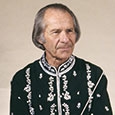Editor’s Note: As a tribute to the memory of Sousa we offer Frederick Fennell’s remembrance of this not-entirely-imaginary conversation with a slightly cynical teenage trumpet player at the intermission of an all-state rehearsal. This gem from our archives originally ran in March 1982.

The body was taken to Washington, D.C., where both Houses of Congress paused to pay tribute, and thousands lined the streets on March 10, 1932 to pay their last respects as eight white horses drew a black caisson to Congressional Cemetery.
(from John Philip Sousa – American Phenomenon by Paul E. Bierley, and excellent 261-page biography containing reliable information and valuable insights)
TT: Dr. Fennell, how come an obviously old swinger like you can be so hung up on a square like Sousa?
FF: First off, who said I was old? And another thing – Sousa wasn’t square.
TT: Now come on, Dr. Fennell, how can you say that, let alone believe it?
FF: It’s not my custom to say things I don’t believe, and when I like something as much as I like King Cotton, High School Cadets, or U.S. Field Artillery I not only say so, I play them to the hilt any time I get the change. They really swing! By the way, have you played any of those marches lately?
TT: Well, not really, but I remember trying to play On the Mall in junior high, and that was so . . . so yukh. I couldn’t even get with the la-las.
FF: Well, la is A natural in solfege, and, besides, Sousa didn’t write that very good march. Goldman did – the father, not the son.
TT: Who’s Goldman?
FF: Mr. Goldman was a very successful bandmaster in New York City, and he composed some fine marches, too. Like Sousa, he wasn’t square, either. His name appears in the upper right hand corner of the music you played from, or – as you said – “tried to.” But let’s get back to Sousa. I take it that you don’t care much for Manhattan Beach, which we just read through before the break.
TT: Uh, it was kinda okay. It’s such a drag reading charts from those dumb little hunks of paper they usually give us. Thanks for making this one so I can read it.
FF: Don’t thank me, thank the publisher, and toss in some real appreciation for Mr. Sousa while you’re at it. You kids owe him a lot. Everybody who has ever heard his band, including me, always said he had a really great one. He loved entertaining people with his music – all kinds of music, not just his marches – and he took his big band to just about every place that the railroad went. By the way, have you ever seen a train or been on one?
TT: I rode the one at Disney World last summer. Why do I owe Sousa anything? What did he ever do for me and the rest of us in this band?
FF: Well, we’re due back on stage in about five minutes, which is hardly enough time to even open up a subject as big and as close to my life as that one, but in essence let me say that Sousa was a great example of how far a person can develop his talent for the pleasure of others, while not becoming a success by trampling others into nothingness in the process. He learned his crafts, kept his faith, paid his bills, and enriched the lives of the people of his time with music. He and his band were the Led Zeppelin of their day, bringing the people out wherever they went. Tickets sold out the day they went on sale, and the band was re-booked when available. The did it with all kinds of tunes, including a lot of the pop music of their day. You probably haven’t played The Washington Post March. Sousa’s march most likely made the paper known to lots of people outside Washington. This happened because the Washington Post became one of the hottest dance tunes of the 1880s and 90s. The dance is called the two-step, and it isn’t likely to go away. If you could get a peek at Mr. Sousa’s royalty sheets and convert those dollars to today’s values you just might be impressed.
TT: Okay, he was somebody then. How does he get to be somebody today?
FF: He probably always knew that you were the people who could keep him a somebody. Just keep your ears open and judge what you hear by how you feel about it. Don’t color your hearing by the dark blue of the Sousa band uniform or thoughts of how square it was way back then. Reach beyond that. Open up your ears and your heart. John Philip Sousa awaits you.
Thanks a lot for making me think. We’re due back on stage. It’s time for another shot at Manhattan Beach. You just might like it, too. Where did you say you were from?






